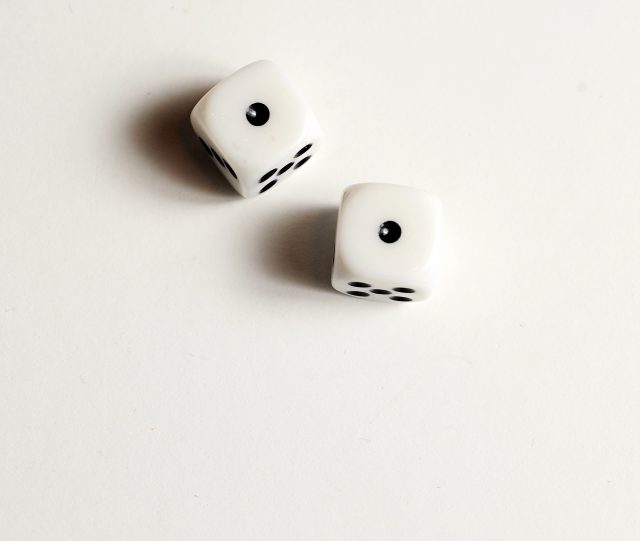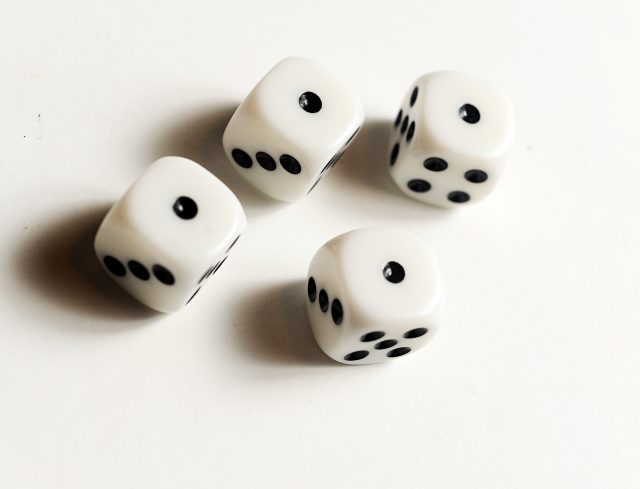It’s human nature that we tend to measure ourselves by our accomplishments. We’re competitive, and if we can point to a victory and feel good about it, we feel like we’re getting ahead. This part of our conditioning is particularly evident when we play board games. We’re matching wits with our opponents, and if we’re outplayed or outsmarted it can leave a sting to our pride. The result can range from a prolonged, nagging feeling of loss throughout the rest of the evening, to a full-blown, table-flipping meltdown. Now, hopefully the number of table-flipping incidents in your gaming group are fairly low, but even feeling bad about a loss is something that can be combated, or at least you can flip your perspective on the loss.
If you play games on a regular basis, you are going to lose sometimes (honestly, winning wouldn’t be any fun if you didn’t). Here are a few things to think about next time you game to take the pressure of winning off a bit.
When a gaming group really loves a particular title, they can play it to death. Everyone in the group knows the meta, the right moves, and their own personal potential for success. For years, my friends and I would play Settlers of Catan, Dominion, and Puerto Rico, to the point of having long lasting and deep seeded vendettas. We all knew the games so well, you couldn’t really rely on someone making a mistake, so you yourself had to play a perfect game…and get a little bit lucky. While there’s definitely something awesome about knowing the ins and outs of a game really well, when you all sit down to play something new for the first time, all of a sudden, all of those old pressures disappear. Everyone is on a level playing field and you’re all learning as you go. Someone will still win, but it won’t come with a long history of battles. You can enjoy the game for what it is, rather than all the baggage of previous sessions some games will have for you. It’ll make a loss a lot easier to swallow.
 Learn From Your Mistakes
Learn From Your MistakesWhen you lose a game, it can be easy to let anger, frustration, or disappointment cloud your perceptions. Those feelings are not innately bad, but use that energy to your advantage. Study what went wrong. How did the victor gain their advantage? What can you do differently next time? Was your strategy a bust, or could you have pulled it out with a few tweaks or lucky breaks? Remember, when you play a game, it’s probably not the only time you’ll do so. Losing a battle stinks, but only if you don’t take something away from it. Often, when I’ve won a game, it was the worst thing for me. I begin to believe my brilliant game plan and flawless execution is the way to go in a game. It stifles your need for exploring new, and potentially better strategies. If you’re losing, try something different, see where risky moves might lead you, and file that information away for the next time that game hits the table. Chances are the winner will try to do the same thing again, but you’ll be in a better position to counter that, and they won’t see your new approach coming.
This is a good rule of thumb anyways, but it’s particularly useful to deal with losing. If you find yourself coming up short in a bunch of games in a row, that can be frustrating, but losing them all to the same group of people can really get under your skin. Maybe they have your strategies figured out, maybe they’re more experienced than you, maybe they’re just having a lucky streak. Whatever the reason, when the losses pile up to the same people, it’s going to make sitting down to the table with them that much more daunting. Switching up your opponents will allow you to try different things, attack the same problems with fresh eyes, and play without the lingering grudges of past encounters. Of course, you will end up at the table with the same people, but introducing some variety is helpful on a lot of different levels.
 Separate Yourself Before the Game
Separate Yourself Before the GameWe often enter a game with the desire to win. That’s only natural. However, we can control that desire by separating ourselves from the expectation or anticipation of winning. Before a game starts, visualize how much fun it’ll be to win. Pretty great, eh? Now picture losing. Does that make you not want to play in the first place? If the answer is yes, then you are probably putting too much importance on the outcome and not enough on the experience itself. Try to go into games accepting that you might lose, in fact, the odds probably support that outcome. In a four-player game you have a 25% chance (not accounting for experience etc.). The odds are much higher that someone else will win. Embrace that! If you do win, you’ve beaten the odds, if you don’t, you still got to pass some time making fun decisions in a low stakes situation. You still win in a sense!
None of these strategies for losing well are flawless or foolproof. We’ll all lose at times and feel sore about it. However, if you can consider a few of these tips before your next game, the sting of defeat might be a little less acute.
Pretty good advice…..for everyone else. 😛